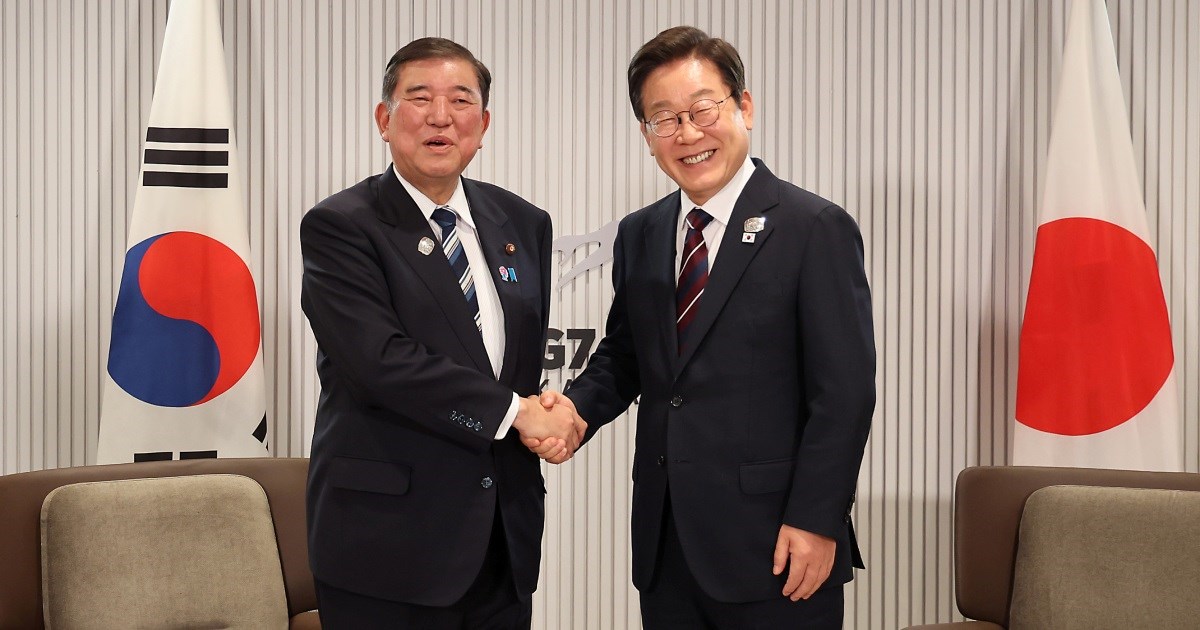The new South Korean president Lee Jae Myung and Japanese Prime Minister Shigeru Ishiba held their first meeting during the G7 summit in Canada, where they committed to deepening bilateral relations and strengthening trilateral cooperation with the United States. The meeting was deemed important in the current strategic environment, especially due to challenges posed by North Korea and growing competition from China. Although relations between South Korea and Japan have been tense due to historical disputes, the new South Korean leader showed a pragmatic approach and willingness to improve cooperation. Additionally, the first joint air military exercise under the new administration was held. This event is significant as it marks President Lee’s first international trip since his election, closely watched by the US and China.
Political Perspectives:
Left: Left-leaning reports emphasize the importance of diplomatic engagement and pragmatic cooperation between South Korea and Japan despite historical tensions. They highlight the potential for regional stability through trilateral cooperation with the United States and view the new South Korean leadership’s approach as a positive step towards peace and economic collaboration.
Center: Center-leaning coverage focuses on the strategic significance of the meeting amid regional security challenges, such as North Korea’s nuclear threat and China’s rising influence. It presents the meeting as a pragmatic and necessary step to strengthen alliances and maintain regional balance, noting the historical context but emphasizing forward-looking cooperation.
Right: Right-leaning narratives stress the importance of strong alliances between South Korea, Japan, and the United States to counter threats from North Korea and China. They may highlight the need for a firm stance on security and criticize past leadership for weak diplomacy, viewing the new South Korean president’s pragmatic approach as a strategic improvement.








































